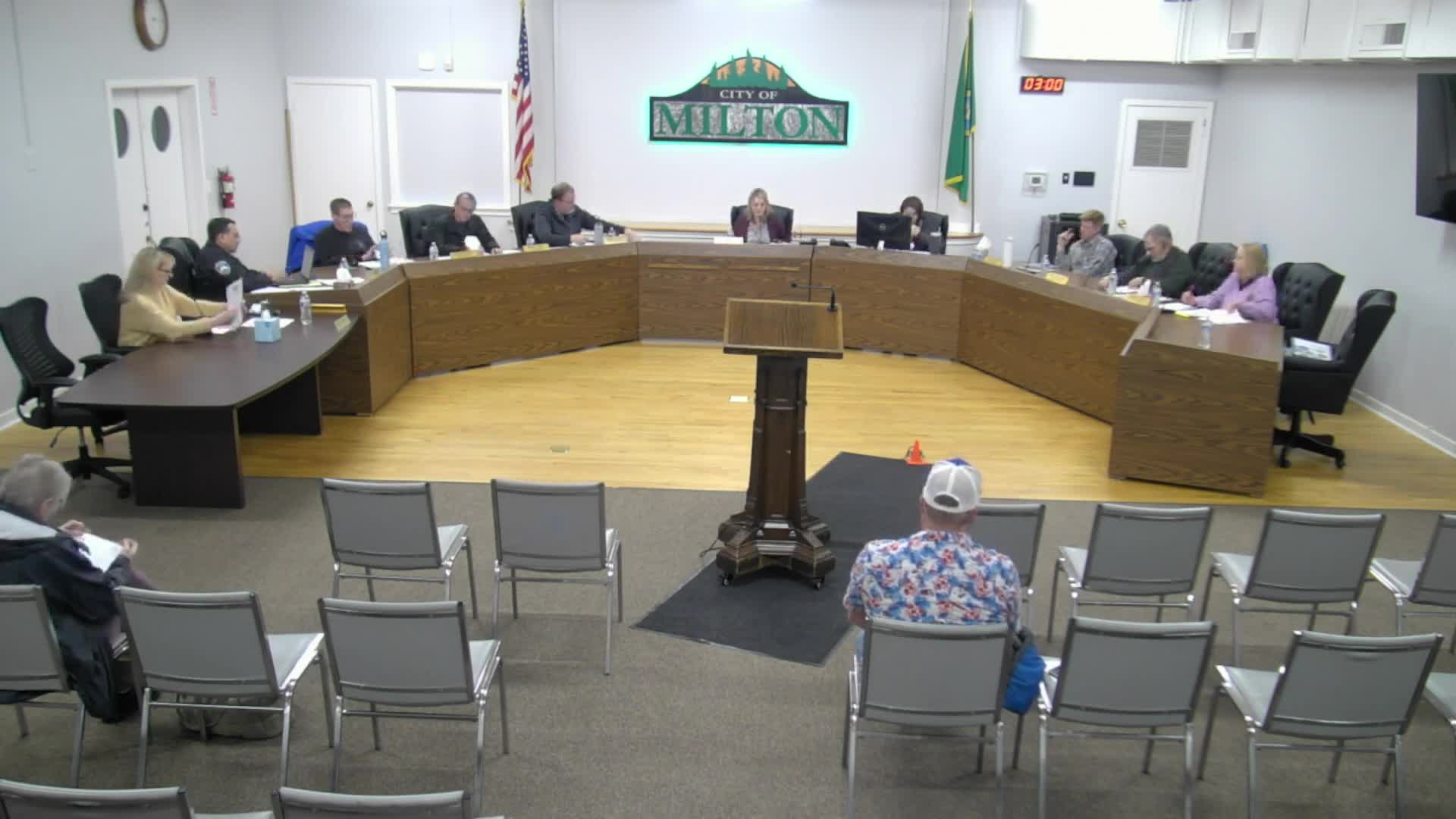Milton council approves tougher camping rules after heated debate over homelessness and enforcement
Get AI-powered insights, summaries, and transcripts
Subscribe
Summary
The Milton City Council voted 5-1 to adopt ordinance 2128-25, strengthening camping and public‑space enforcement while attaching resource handouts and documentation requirements for officers; opponents said the measure focuses on 'the stick' without sufficient housing or service commitments.
Milton — The City Council on Nov. 17 approved ordinance 2128-25, a code amendment tightening rules on camping in public spaces, after extended debate over whether enforcement alone will address homelessness.
Chief Hernandez told council the ordinance pairs new enforcement language with resource handouts for individuals — shelter contacts, intake instructions and referrals to food banks — and a requirement that officers document initial contacts so probable cause for enforcement can be established after repeated contacts. "We're not looking at criminalizing people that are homeless. We're talking about people that are camping where they shouldn't be camping," he said.
Mayor Pro Tem Whitaker, who moved to adopt the ordinance, said the measure "lays everything out in front of them" and provides leniency and resources before enforcement. "You're laying everything out in front of them and you're letting them know ... we can set you up in getting you in contact with those," he said.
Council member Seeder said he would not support the ordinance and criticized its drafting and approach. He argued the language includes a problematic "shall attempt" formulation and warned against relying solely on penalties. "It's contradictory language," Seeder said, adding that enforcement without comparable housing or services has not worked in other jurisdictions. Seeder also referenced a recent Supreme Court decision addressing Eighth Amendment claims and urged council to pair enforcement with substantive support programs.
Several residents spoke during public comment. Susan Johnson, a Milton resident, said she trusts the police and supports firm action when outreach is refused. "This is a step," she said. Another resident identified as Steve Peretti criticized conditions he said exist in neighboring cities and called for "more teeth" for the police.
Council members who supported the ordinance emphasized public-safety concerns, citing reports of fires and sanitation problems in public areas. Council member Hall asked staff to return with a report on locations and outcomes so the council can evaluate the ordinance's effectiveness.
The motion to approve ordinance 2128-25 carried by a 5-1 vote; the transcript records the tally but not a full roll call of each member's vote. Council member Seeder had publicly announced opposition during debate.
What happens next: The ordinance takes effect as passed; council asked staff to monitor outcomes and provide follow-up reporting on enforcement contacts and locations so the council can reassess whether additional services or policy changes are needed.
